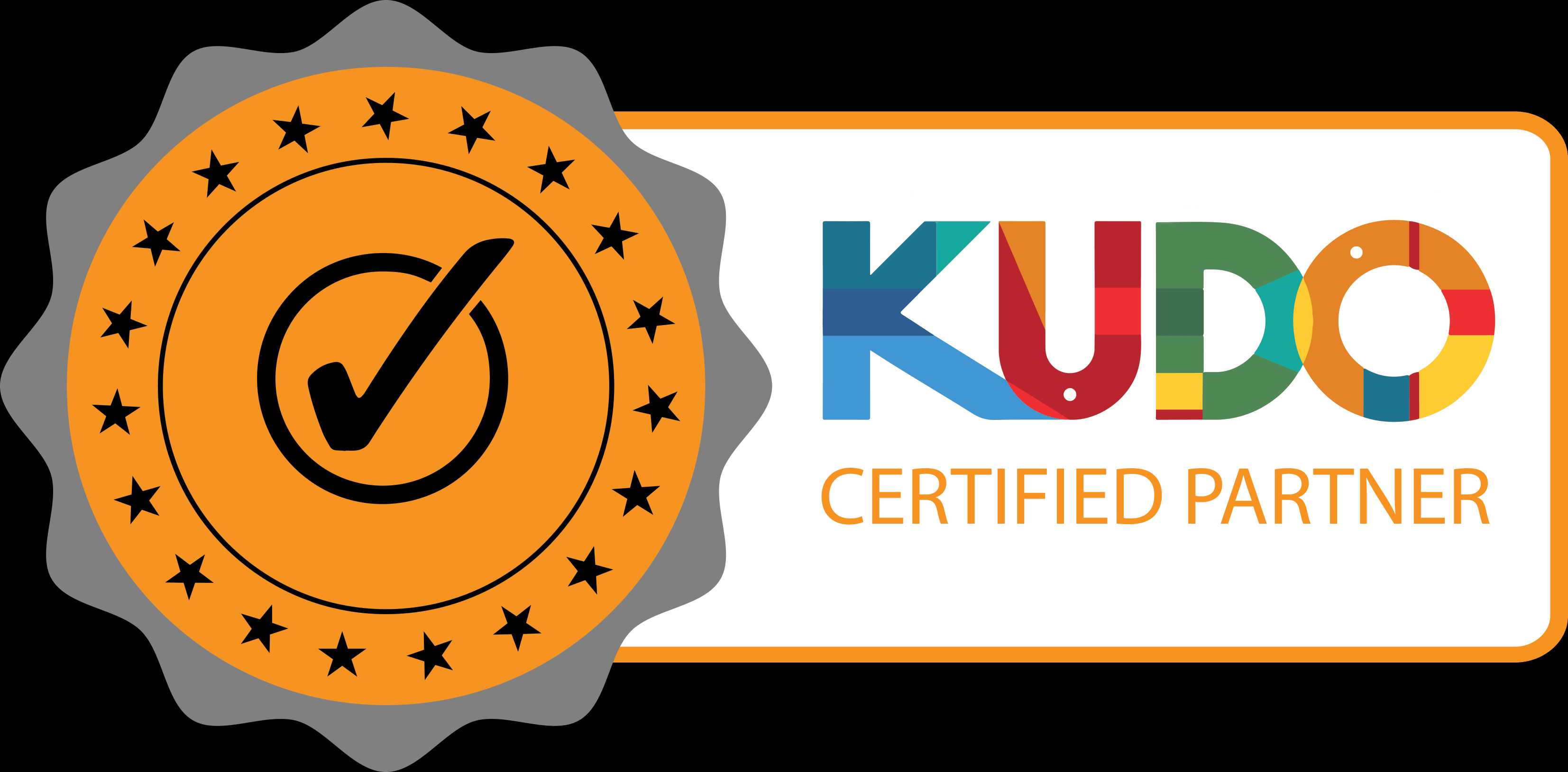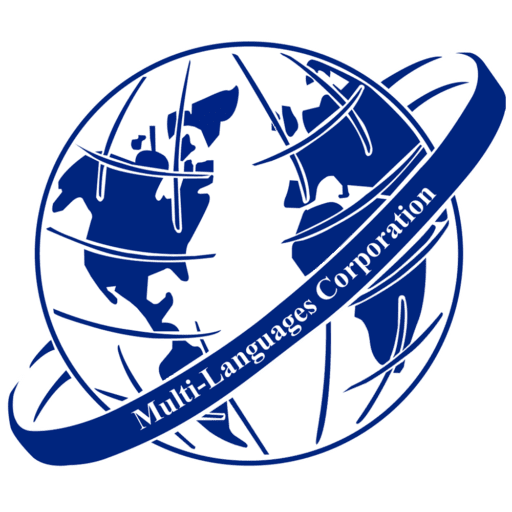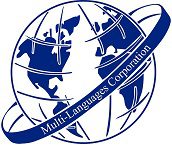CONFERENCE SIMULTANEOUS INTERPRETING
CONFERENCE SIMULTANEOUS INTERPRETING

Certified KUDO Partner
We are very proud to announce we are the very first Certified KUDO Studio in Canada. KUDO is a powerful cloud-based platform that allows people and businesses to collaborate and meet more effectively across geographic and language barriers. KUDO streams real-time language interpretation for web meetings and live conferences.We appreciate working with the KUDO team. Their professionalism, expertise in simultaneous interpreting and innovative technologies make them #1.

Certified KUDO Partner
We are very proud to announce we are the very first Certified KUDO Studio in Canada. KUDO is a powerful cloud-based platform that allows people and businesses to collaborate and meet more effectively across geographic and language barriers. KUDO streams real-time language interpretation for web meetings and live conferences.We appreciate working with the KUDO team. Their professionalism, expertise in simultaneous interpreting and innovative technologies make them #1.
High Quality Translation and Interpretation Services
Conference Interpreting - Simultaneous Interpreters
A conference interpreter is a professional language expert who interprets the meaning of a speaker’s message orally in another language to listeners who do not understand the presented language. The work of a Conference Interpreter requires different training and qualifications since the interpreting is done simultaneously.
If you would like more information on how to contract the right conference interpreters, claim your free copy of “How to get it right when contracting conference interpreting” in the link below.
Why? You might wonder, why are we giving away this book at no cost to you? Because both authors, Helen Campbell and Lola Bendana have a solid commitment to Interpreting Quality as well as a passion for raising the standards for the simultaneous interpreting sector. The book has been published as a public service, it is freely available.
What is included in the book?
- Conference Interpreting Quality
- Documentation
- Tips for Speakers and Managers
- Modes of interpreting
- General definitions
- Professional Practice Conditions
- Team Composition
- Language classification
- Resources
- National and International Associations and organizations
- Glossaries and Term bases
- AIIC (International Association of Conference Interpreters) Code of Professional Ethics
- Risks and Benefits of Contracting Conference Interpreting
Who can use it?
- Requesters of conference interpreting services
- Interpreters
- Professors of conference / simultaneous interpreting
- Managers
- Students
- Anyone interested in the beautiful world of conference interpreting
High Quality Translation and Interpretation Services
Conference Interpreting - Simultaneous Interpreters
A conference interpreter is a professional language expert who interprets the meaning of a speaker’s message orally in another language to listeners who do not understand the presented language. The work of a Conference Interpreter requires different training and qualifications since the interpreting is done simultaneously.
If you would like more information on how to contract the right conference interpreters, claim your free copy of “How to get it right when contracting conference interpreting” in the link below.
Why? You might wonder, why are we giving away this book at no cost to you? Because both authors, Helen Campbell and Lola Bendana have a solid commitment to Interpreting Quality as well as a passion for raising the standards for the simultaneous interpreting sector. The book has been published as a public service, it is freely available.
What is included in the book?
- Conference Interpreting Quality
- Documentation
- Tips for Speakers and Managers
- Modes of interpreting
- General definitions
- Professional Practice Conditions
- Team Composition
- Language classification
- Resources
- National and International Associations and organizations
- Glossaries and Term bases
- AIIC (International Association of Conference Interpreters) Code of Professional Ethics
- Risks and Benefits of Contracting Conference Interpreting
Who can use it?
- Requesters of conference interpreting services
- Interpreters
- Professors of conference / simultaneous interpreting
- Managers
- Students
- Anyone interested in the beautiful world of conference interpreting
How to get it Right When Contracting Conference Interpreting
The authors, Helen Campbell and Lola Bendana would like to thank the following expert Conference Interpreters who contributed with this book:
-
- Andrew Clifford
- Caroline Napier
- Jacques Roland
- Taous Selhi
- Izabel Souza (formerly Arocha)
This book will teach you everything you need to know about Contracting a Conference Interpreter.
How to get it Right When Contracting Conference Interpreting
The authors, Helen Campbell and Lola Bendana would like to thank the following expert Conference Interpreters who contributed with this book:
-
- Andrew Clifford
- Caroline Napier
- Jacques Roland
- Taous Selhi
- Izabel Souza (formerly Arocha)
This book will teach you everything you need to know about Contracting a Conference Interpreter.
Conference Interpreter Credentials:
We work only with senior conference interpreters
For simultaneous conference interpretation we follow the Standards and criteria as specified by:
- The International Association of Conference Interpreters – AIIC
- The Canadian Association of Conference Interpreters – CACI
- Public Works and Government Services Canada – PWGSC (Translation Bureau Accreditation)
- The Association of Translators and Interpreters of Ontario – ATIO
- Ordre des traducteurs, terminologues et interprètes agréés du Québec – OTTIAQ
AIIC working conditions for simultaneous conference interpretation
AIIC Code of Professional Ethics
Logistical information
We provide coaching and consulting services for the planning of your event.
Provide us with all the necessary details, we will help you to identify your requirements, create an agreement, organize the team of interpreters and the specialized equipment, if necessary.
Booking interpreters
- Qualified conference interpreters require advanced booking
- Book the interpreters as soon as your event is confirmed. Sometimes, at peak times, you will need to do it months in advance to recruit the best interpreters and avoid additional travel, and Per Diem costs if out-of-town interpreters need to be recruited.
- We need to let the interpreter(s) know immediately in the event of a cancellation
We need from our clients:
- Company name
- Language of presentations (not nationality) and language into which the interpretation is required
- Date of the assignment
- Number of participants
- Time of the assignment and expected duration
- Location
- Room Setup
- Live broadcast or recording requirements. Additional broadcast fee is charged by interpreters
- Booth / AV technical requirements
- Contact person at venue
- Type of event
- Background information so the interpreter can prepare for the encounter
Documentation
It is essential for the Interpreting Service Provider (ISP) and the interpreters to have as much information as possible in advance. This allows them to properly research and prepare as well as to protect the parties involved.
Some useful resources:
- Company / organization’s website
- Event’s agenda
- Events program (or preliminary)
- Slides / Power Point to be presented at the event
- Written speeches
- Speaker’s biographies
- Annual reports
- Consent forms / contracts
- Video or projection scripts
- Glossaries / existing terminology
- Minutes of previous meetings or records of decisions taken
- Any other documentation related to the event
Tips for speakers
Remember that the interpreter is there to pass your message to your audience in the most accurate way
- Speak at a reasonable pace
- If you need to read, slow down your reading speed
- Make sure the interpreters have your speech, bio, Power Point, videos, etc. ahead of time
- Speak close to the microphone
- Avoid acronyms or explain them, ideally, interpreters should have all acronyms ahead of time
Venue
Liaison: There should be one point of contact for the conference interpreters during the event.
Conference interpreter’s room: It is ideal to have an interpreter’s room or place where they can collect documentation and/or use for further reading or rest while not in the booth.
Equipment/Booths: We are happy to arrange the Conference Interpretation equipment and technicians for you or work with your provider. Some questions we may ask:
- Does the venue have booths?
- Is there room for mobile booths?
- Are the booths positioned in a way that have proper view of the speakers? If the booths will not be in the same room as the speakers you need to have a live feed of the event visible to the interpreters.
- Do you need booths in several rooms?
- Do you have a reliable audio feed at the venue?
- How many headsets will you need?
- Setup time for the booth?
- Do you need other AV equipment from us?
Professional Practice Conditions for Conference Interpreters in North America – Team Composition
Make sure you follow the team composition as recommended by the Association of Translators and Interpreters of Ontario (ATIO) and the International Association of Conference Interpreters (AIIC).
Conference interpreters are recruited on a daily basis. Given the physical and mental fatigue they sustain due to their high level of concentration, they need to work in teams.
The number of interpreters in a team and the makeup of the team are to be determined according to the working hours, working languages, the mode of interpretation and type of conference.
For Interpretation in meetings with two working languages, working both ways in a single booth:
- maximum 40 minutes 1 interpreter
- maximum 4 hours 2 interpreters
- maximum 6 hours 3 interpreters
- maximum 8 hours 4 interpreters
For meetings with four or more working languages: at least two interpreters per booth, and three interpreters in booths with a heavy workload or where interpreters are working both directions.
The use of relay interpreting should be avoided whenever possible. In addition, one team member should not be exclusively responsible for the interpretation from any given language except for short periods. Such an interpreter would be called the ‘pivot unique’, but wherever possible, this situation should be avoided.
The number of interpretation booths is equal to the number of languages into which interpreters work in, except in the case of conferences with two working languages, which only require one booth.
Source: AIIC
Language classification for conference interpreting purposes
- Language A:Native language or equivalent to native, used as source and target.
- Language B:Other than native, perfect command, used as source and in some cases as a target.Languages A and B are known as Active languages.
- Language C:Complete understanding but only use as source.Language C is known as Passive language.
Conference Interpreting Tools from ORCIT (Online Resources for Conference Interpreter Training)
ORCIT – or Online Resources for Conference Interpreter Training – is an EU- European Union – funded project producing interactive pedagogical tools for trainers and students of conference interpreting. It builds on the success of the UK government-funded National Network for Interpreting, bringing in partners from across the EU.
Some of the resources include:
- Listening
- Public Speaking
- Consecutive
- Simultaneous
- Research Skills
To learn more about ORCIT CLICK HERE
Conference Interpreter Credentials:
We work only with senior conference interpreters
For simultaneous conference interpretation we follow the Standards and criteria as specified by:
- The International Association of Conference Interpreters – AIIC
- The Canadian Association of Conference Interpreters – CACI
- Public Works and Government Services Canada – PWGSC (Translation Bureau Accreditation)
- The Association of Translators and Interpreters of Ontario – ATIO
- Ordre des traducteurs, terminologues et interprètes agréés du Québec – OTTIAQ
AIIC working conditions for simultaneous conference interpretation
AIIC Code of Professional Ethics
Logistical information
We provide coaching and consulting services for the planning of your event.
Provide us with all the necessary details, we will help you to identify your requirements, create an agreement, organize the team of interpreters and the specialized equipment, if necessary.
Booking interpreters
- Qualified conference interpreters require advanced booking
- Book the interpreters as soon as your event is confirmed. Sometimes, at peak times, you will need to do it months in advance to recruit the best interpreters and avoid additional travel, and Per Diem costs if out-of-town interpreters need to be recruited.
- We need to let the interpreter(s) know immediately in the event of a cancellation
We need from our clients:
- Company name
- Language of presentations (not nationality) and language into which the interpretation is required
- Date of the assignment
- Number of participants
- Time of the assignment and expected duration
- Location
- Room Setup
- Live broadcast or recording requirements. Additional broadcast fee is charged by interpreters
- Booth / AV technical requirements
- Contact person at venue
- Type of event
- Background information so the interpreter can prepare for the encounter
Documentation
It is essential for the Interpreting Service Provider (ISP) and the interpreters to have as much information as possible in advance. This allows them to properly research and prepare as well as to protect the parties involved.
Some useful resources:
- Company / organization’s website
- Event’s agenda
- Events program (or preliminary)
- Slides / Power Point to be presented at the event
- Written speeches
- Speaker’s biographies
- Annual reports
- Consent forms / contracts
- Video or projection scripts
- Glossaries / existing terminology
- Minutes of previous meetings or records of decisions taken
- Any other documentation related to the event
Tips for speakers
Remember that the interpreter is there to pass your message to your audience in the most accurate way
- Speak at a reasonable pace
- If you need to read, slow down your reading speed
- Make sure the interpreters have your speech, bio, Power Point, videos, etc. ahead of time
- Speak close to the microphone
- Avoid acronyms or explain them, ideally, interpreters should have all acronyms ahead of time
Venue
Liaison: There should be one point of contact for the conference interpreters during the event.
Conference interpreter’s room: It is ideal to have an interpreter’s room or place where they can collect documentation and/or use for further reading or rest while not in the booth.
Equipment/Booths: We are happy to arrange the Conference Interpretation equipment and technicians for you or work with your provider. Some questions we may ask:
- Does the venue have booths?
- Is there room for mobile booths?
- Are the booths positioned in a way that have proper view of the speakers? If the booths will not be in the same room as the speakers you need to have a live feed of the event visible to the interpreters.
- Do you need booths in several rooms?
- Do you have a reliable audio feed at the venue?
- How many headsets will you need?
- Setup time for the booth?
- Do you need other AV equipment from us?
Professional Practice Conditions for Conference Interpreters in North America – Team Composition
Make sure you follow the team composition as recommended by the Association of Translators and Interpreters of Ontario (ATIO) and the International Association of Conference Interpreters (AIIC).
Conference interpreters are recruited on a daily basis. Given the physical and mental fatigue they sustain due to their high level of concentration, they need to work in teams.
The number of interpreters in a team and the makeup of the team are to be determined according to the working hours, working languages, the mode of interpretation and type of conference.
For Interpretation in meetings with two working languages, working both ways in a single booth:
- maximum 40 minutes 1 interpreter
- maximum 4 hours 2 interpreters
- maximum 6 hours 3 interpreters
- maximum 8 hours 4 interpreters
For meetings with four or more working languages: at least two interpreters per booth, and three interpreters in booths with a heavy workload or where interpreters are working both directions.
The use of relay interpreting should be avoided whenever possible. In addition, one team member should not be exclusively responsible for the interpretation from any given language except for short periods. Such an interpreter would be called the ‘pivot unique’, but wherever possible, this situation should be avoided.
The number of interpretation booths is equal to the number of languages into which interpreters work in, except in the case of conferences with two working languages, which only require one booth.
Source: AIIC
Language classification for conference interpreting purposes
- Language A:Native language or equivalent to native, used as source and target.
- Language B:Other than native, perfect command, used as source and in some cases as a target.Languages A and B are known as Active languages.
- Language C:Complete understanding but only use as source.Language C is known as Passive language.
Conference Interpreting Tools from ORCIT (Online Resources for Conference Interpreter Training)
ORCIT – or Online Resources for Conference Interpreter Training – is an EU- European Union – funded project producing interactive pedagogical tools for trainers and students of conference interpreting. It builds on the success of the UK government-funded National Network for Interpreting, bringing in partners from across the EU.
Some of the resources include:
- Listening
- Public Speaking
- Consecutive
- Simultaneous
- Research Skills
To learn more about ORCIT CLICK HERE


